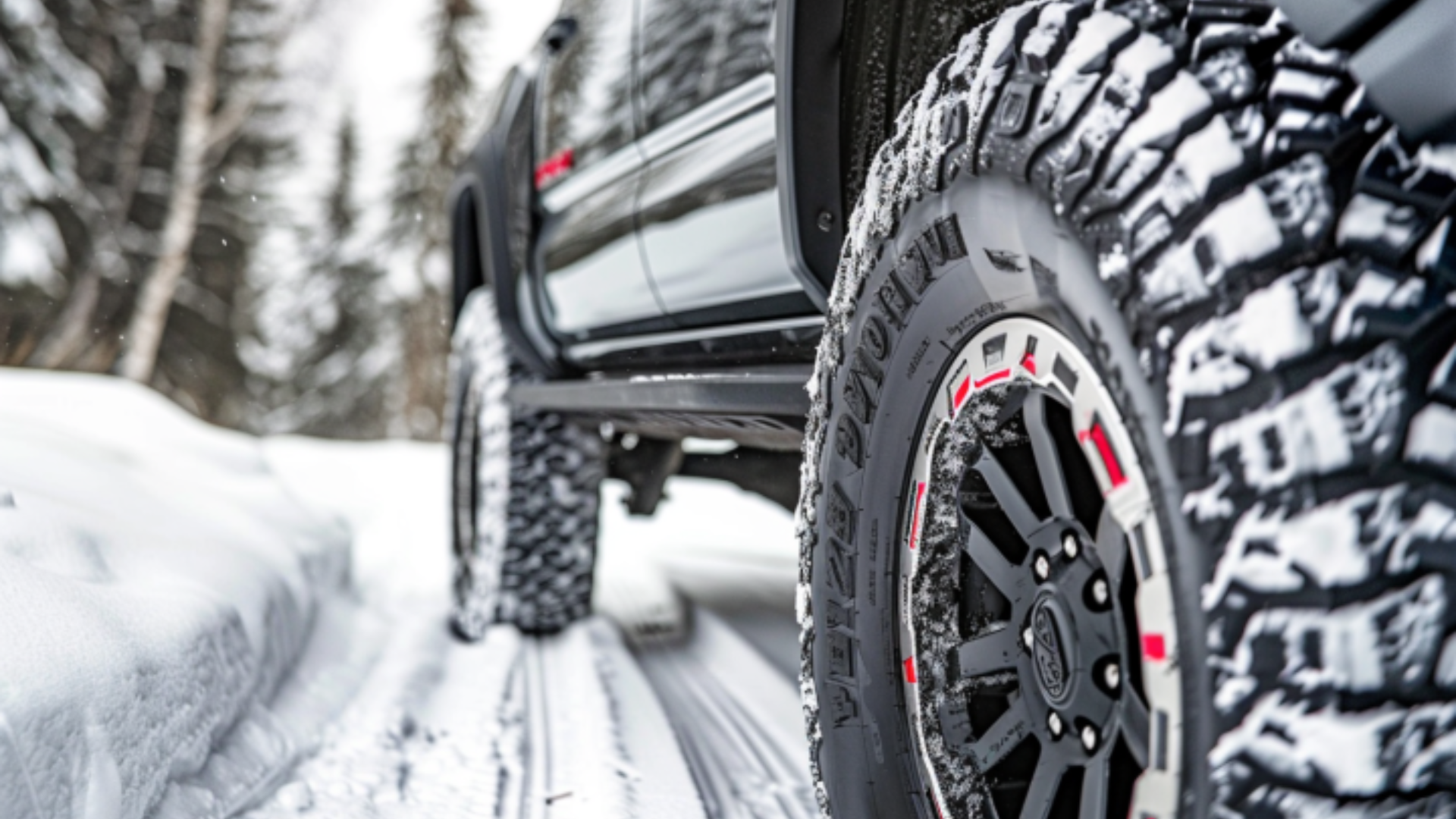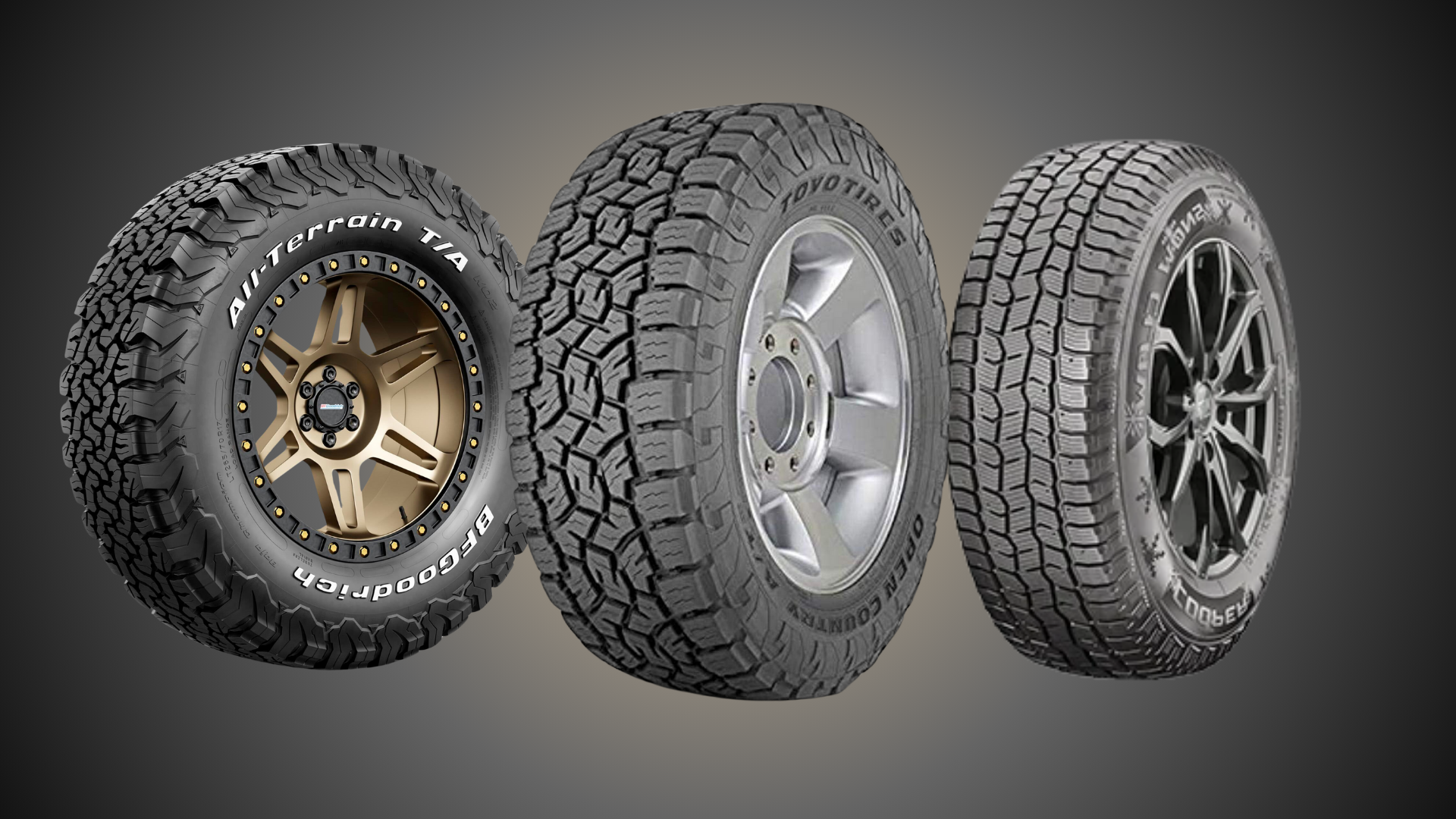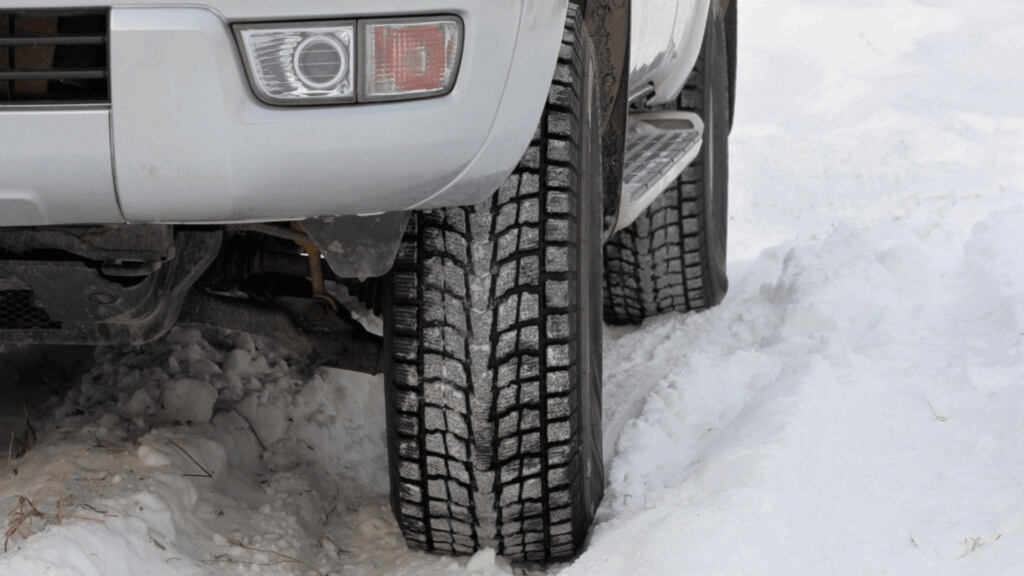When winter hits hard, I know how tricky it can be to drive a truck on icy or snowy roads. That’s why I always make sure my tires are ready for the cold.
Regular tires just don’t give you the grip and safety you need when the roads get slippery.
Winter tires are made to stay soft in the cold and have special tread patterns to help your truck stop and turn better.
I wrote this guide to help you find the best winter tires for your truck, ones that real drivers and experts trust.
If you live somewhere with heavy snow or get the occasional freeze, having the right tires can make a big difference.
Let’s take a look at the top winter tires out there and what makes each one worth considering for your truck.
Why Winter Tires Are Essential for Trucks?
When I first started driving my truck in the winter, I didn’t realize how much of a difference winter tires could make. But once I switched, I saw the change right away.
Winter tires are designed with special rubber that stays soft even when the temperature drops. That means a better grip on icy or snowy roads.
And with a truck’s heavy weight, you need tires that can handle stopping and turning in tough conditions.
Winter tires also have deeper treads and more sipes (tiny slits) that help cut through snow and push water out from under the tire.
This helps prevent sliding and keeps your truck stable.
If you haul heavy loads or drive in the mountains like I do, winter tires are even more important. They give you the control and safety you need when the weather takes a turn.
Key Features to Look for in Winter Truck Tires

Before I pick winter tires for my truck, I always check for a few key things. These features make all the difference when it comes to staying safe on snow and ice.
- Three-Peak Mountain Snowflake (3PMSF) Symbol: This little mountain symbol means the tire has passed tests for snow performance. I never buy winter tires without it—it’s a clear sign they’re built for serious winter conditions.
- Cold-Weather Rubber Compound: Winter tires use a special rubber that stays soft and flexible in freezing temperatures. This helps the tires grip the road better, especially when it’s icy. Regular tires can get hard and lose grip in the cold.
- Deep Tread and Sipes: Look for tires with deep grooves and lots of tiny cuts (called sipes). They help your truck hold the road, clear snow, and reduce slipping.
- Studded vs. Studless Options: Studded tires have metal pins for extreme ice, but they’re noisy and not legal everywhere. I go with studless for quieter rides and more flexibility unless I’m driving in very icy areas.
- Load Rating and Tire Size: Trucks are heavier than cars, so the tires need to support more weight. I always make sure the load rating fits my truck’s specs—especially if I’m towing or carrying gear.
Choosing winter tires with these features gives me peace of mind every time I hit the road in cold weather.
Top Expert-Recommended Winter Tires for Trucks
Choosing the right winter tires improves truck control in snow and ice. These top-rated picks offer safety, grip, and lasting performance.
1. Bridgestone Blizzak DM-V2
- Features: Multi-Cell Compound for better grip on ice, 3D zigzag sipes for traction.
- Pros: Excellent ice braking, strong snow performance, smooth ride.
- Cons: Shorter tread life compared to all-season tires.
- Ideal For: Drivers needing top-tier control on icy roads.
2. Michelin X-Ice Snow SUV
- Features: Flex-Ice 2.0 compound, rigid tread blocks, and full-depth sipes.
- Pros: Long tread life, fuel-efficient, quiet ride.
- Cons: Premium pricing.
- Ideal For: Urban and highway drivers in cold climates.
3. Goodyear WinterCommand Ultra
- Features: V-Tred pattern for wet and slushy conditions, directional tread design.
- Pros: Strong handling in slush and wet ice, stable at high speeds.
- Cons: May wear faster on dry roads.
- Ideal For: Regions with heavy slush and mixed winter conditions.
4. Nokian Hakkapeliitta R5
- Features: Double Block Grip design, Aramid sidewalls, and snow claws.
- Pros: Outstanding snow traction, long-lasting, and eco-friendly.
- Cons: Pricey and limited availability in some areas.
- Ideal For: Harsh winter areas and off-grid travel.
5. Firestone Winterforce CV
- Features: High-sipe density pattern, studdable design, directional tread.
- Pros: Affordable, reliable in deep snow, durable build.
- Cons: Noisier than premium models.
- Ideal For: Budget-conscious drivers in snowy regions.
6. BFGoodrich Winter T/A KSI
- Features: Serrated shoulder design, winter-optimized compound.
- Pros: Good grip on snow and wet roads, affordable.
- Cons: May not be as quiet as higher-end tires.
- Ideal For: Light truck and SUV owners needing dependable performance.
7. Toyo Observe GSi-6
- Features: Nano Balance Technology, microbit-enhanced compound.
- Pros: Strong ice braking, stable in deep snow.
- Cons: Slightly stiff ride on dry roads.
- Ideal For: Drivers in icy climates with changing road surfaces.
8. General Grabber Arctic
- Features: DuraGen Technology, studdable tread.
- Pros: Great snow traction, strong sidewalls.
- Cons: Heavier than some competitors.
- Ideal For: Off-road winter driving and tough rural routes.
9. Hankook i*Pike RW11
- Features: Wide tread blocks, multiple sipes, studdable options.
- Pros: Good control on slippery roads, decent wear.
- Cons: Road noise can increase with time.
- Ideal For: Rural and mountain drivers facing heavy snow.
10. Cooper Discoverer Snow Claw
- Features: Snow Groove Technology, studdable, severe weather rating.
- Pros: Deep tread, excellent grip in snow, value pricing.
- Cons: Traction on ice could be better without studs.
- Ideal For: Drivers needing aggressive winter traction on a budget.
With numerous options available on the market, selecting winter tires for a truck can be overwhelming.
These top expert-recommended models have proven themselves through real-world performance, lab testing, and customer satisfaction.
Community Favorites and User Reviews

While expert opinions carry significant weight, everyday truck owners offer valuable insights through their personal experiences.
Many drivers face challenging winter conditions each year and rely on tires that consistently perform in real-world settings.
These community favorites are praised across forums, review sites, and social media for their balance of traction, value, and durability.
BFGoodrich All-Terrain T/A KO2 is one of the most talked-about choices in online truck communities. Though technically an all-terrain tire, it’s rated for severe snow service and handles snowy roads with ease.
Drivers love its rugged build and off-road performance, especially in areas where snow is deep and roads are less maintained.
Toyo Open Country A/T III also earns strong marks for versatility. Users appreciate its quiet highway ride and stable grip in light snow. It’s often chosen by those who need one tire to handle both winter and everyday driving.
Cooper Discoverer Snow Claw stands out as a favorite among budget-conscious drivers. It gets high marks for deep tread, aggressive bite in snow, and reliable handling on icy roads.
These tires may not always top lab test charts, but in daily use, they prove reliable and trusted by thousands of drivers who need solid winter performance without breaking the bank.
How to Choose the Right Winter Tires for Your Truck
Picking the right winter tires can be the key to staying safe and in control when the temperature drops. With so many options out there, it’s important to focus on what truly matters for your truck and your driving habits.
1. Consider Local Weather Conditions
Start by thinking about how harsh winters are in your area. In places with heavy snow and frequent ice, tires with deep tread and strong grip are a must.
These features help prevent slipping and improve control, especially on hills or curves.
If the roads are mostly slushy or wet, look for tires with good water evacuation and strong braking performance.
2. Check Tire Size and Load Rating
Trucks need tires that can handle their weight, especially when carrying tools, equipment, or towing.
A tire that’s too weak could wear out quickly or even fail under pressure.
Always match the tire size and load rating with what’s listed in your truck’s manual to make sure the tires can safely carry the load.
Getting the correct size also ensures proper handling and better fuel efficiency.
3. Set a Budget
Winter tires range in price, with premium options offering better grip, longer tread life, and quieter rides, ideal for harsh winter areas or frequent driving.
Budget models can still perform well in light snow. Choose based on your needs, and remember that paying a bit more now may help avoid costly problems later.
4. Pick Between Studded and Studless
Studded tires are great for ice but may not be allowed in all states due to road damage concerns. They also create more road noise and can feel rough on dry pavement.
Studless tires are quieter, offer smoother rides, and work well in both snowy and icy conditions.
For most drivers, studless tires provide a strong mix of comfort and winter traction without the legal restrictions.
5. Think About Driving Style
Aggressive drivers or those who travel long distances may want tires with stronger sidewalls and better wear resistance.
These features help keep the tires in shape over time, even when driving hard or at higher speeds.
For city driving or short daily trips, comfort and quietness might be more important than extreme grip.
Choose tires that match your driving style to get the best performance and value.
Choosing the right winter tires takes a bit of research, but it’s worth it for the added safety and peace of mind all season long.
Conclusion
After testing different winter tires and hearing from other truck owners, I’ve learned how important the right set can be.
I don’t take chances when it comes to driving in snow, ice, or freezing rain, and having winter tires I trust makes all the difference.
From better grip on icy roads to smoother control in deep snow, the right tires give me confidence behind the wheel.
I always consult expert reviews and real driver feedback to make informed choices for my truck.
While some tires cost more, I think the added safety is worth it. No matter where you drive or how harsh the winter gets, there’s a winter tire that fits your needs.
I hope this guide helps you pick a set that keeps you safe and steady when the weather gets rough. Stay safe out there this winter!

